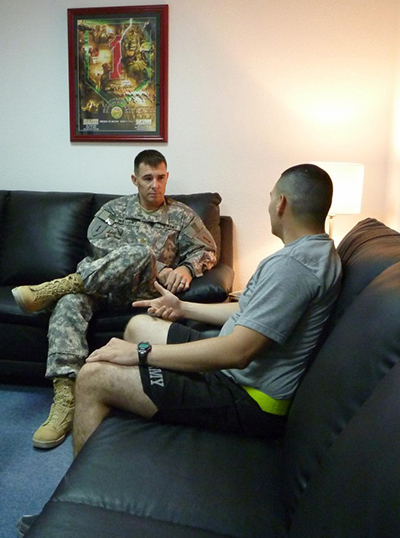Posted by Sidney R. Hinds III, DCoE Public Affairs on September 23, 2016
 U.S. Army photo by Sgt. Jason Kemp
U.S. Army photo by Sgt. Jason Kemp
Compassion fatigue is a natural occurrence that may affect health care providers and the quality of care they provide to patients, a professor of social work said in a psychological health webinar hosted last month by the Defense Centers of Excellence for Psychological Health and Traumatic Brain Injury.
Brian E. Bride, a professor of social work at Georgia State University and editor in chief of “Traumatology: An International Journal,” outlined the risks of compassion fatigue. Bride also explained strategies caregivers can apply to minimize its impact on their mental states and on the care they provide.
Compassion fatigue occurs in caregivers who regularly treat patients who have experienced trauma. This secondhand trauma can produce symptoms identical to those of posttraumatic stress disorder, including intrusive thoughts, irritability, loss of emotional control and loss of concentration. These symptoms may affect providers’ ability to respond to patients.
Recent studies of health care providers indicate that close to half of providers experience compassion fatigue and a significant portion say it negatively affects their work.